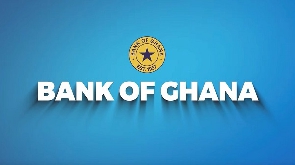The Today Newspaper has been conducting research into the financial sector over the past two years. Questionnaires have been sent to the Bank of Ghana (BoG), National Pensions Regulatory Authority (NPRA), the Securities & Exchange Commission (SEC) and the National Insurance Commission (NIC) to obtain information about foreign investment, performance of industry players etc.
Unfortunately, many of these and other public institutions see the requests for information as something sinister forgetting the crucial role media plays in our democratic dispensation. Some of the heads of financial institutions only think of partisan politics when the requests are made.
But the public has the right to know what goes on in these important public institutions.
One of the topics we have been discussing with experts is the “independence” of the BoG. Experts agree that while per legislation, the central bank is empowered to be independent, in practical life, the various government administrations have chipped away at the independence.
The appointing authorities especially the Ministers of Finance tend to be the culprits. The experts point out the consequences of loss of independence in terms of uncertain policy formulation, bad Human Resource decisions and unbridled reliance on the BOG to finance government operations.
One expert cites the placement at the BOG by Switzerland’s State Secretariat for Economic Affairs, SECO, and the International Monetary Fund (IMF), of a Resident Advisor in financial sector supervision to provide technical assistance and to assist in building the capacity of the banking supervision function as a problem caused by the inability of the BOG to manage its own affairs.
The Advisor, Mr. Leonard Chumo commenced his three year assignment on 6 February 2023.
From a governance standpoint, the first Governor and directors were:
1. Alfred Eggleston, Chairman
2. Douglas F. Stone, Deputy Governor
3. R. S. Blay, Director
4. N. T. Clerk, Director
5. C. E. Osei, Director
6. R. C. Parkin, Director
The experts believe that in recent times, the appointments of BOG Governors and their deputies have been done to reflect the political orientation of the administration in power and in particular to find people who can be influenced by the Ministry of Finance.
This occurrence they say has contributed to the erosion of the central bank’s independence. In recent years, the Governors have been: Dr. Ernest Kobina Addison, Dr. Abdul Nashiru Issahaku, Dr. Henry Kofi Wampah, Mr. K. B. Amissah-Arthur, Dr. Paul A. Acquah, Dr. Kwabena Duffuor and Dr. G.K. Agama. Of these, Dr. Acquah is seen by banking experts as the most independent and objective.
His considerable experience with the IMF and unwillingness to carry out politically motivated directives from the Ministry of Finance coupled with the fact that he has good retirement income from the IMF and didn’t need the job to make a living made it difficult for the appointing authority to threaten him with revoking his appointment.
Over the years, questions have been raised about the BOG’s ability to exert its independence, influence and ability to help shape the country’s economy.
Dr. Paul Acquah a former IMF senior manager and BOG Governor (one of the more independent ones) said during the 50th anniversary of the BOG, “The Bank’s policies and activities have been shaped by changing conditions over the years.
The Bank of Ghana Ordinance (No. 34) of 1957 clearly defined the role of the Bank to suit the circumstances at that time. From the optimism that characterized the country’s independence and aspirations, the Bank of Ghana pursued proactive policies to foster the credit system, creating financial institutions as growth-promoting vehicles, while exercising its fundamental responsibilities of currency management and acting as the Government’s banker.
The Bank has been driven by the power of ideas; by the influence of men and women in public roles and those privileged to serve the Bank; and by the twist and turns on the path of social and economic progress of the nation.”
Historically, the Bank of Ghana Ordinance of 1957 which established the Bank of Ghana provided it with statutory and operational independence until the passage of the Bank of Ghana Act 1963 Act 182 which however took away the independence that allowed the government interference in the operations of the central bank for nearly five decades (Bawumia, 2010), but in 1992 the Constitution restored the operational independence and later in 2002 the Bank of Ghana Act was passed by the Parliament to restore the independence.
For nearly forty -five years, various governments interfered in the operations of Bank of Ghana and it was characterized by huge fiscal dominance. The independence of the Bank of Ghana under the Bank of Ghana Act also provided the Bank with the freedom to pursue policies in the interest of the financial sector without having to wait on approval from the Government or any other authority.
Section 3 (1) of the Bank of Ghana Act 2002 Act 612 specifies that “the primary objective of the Bank is to maintain stability in the general stability in the general level of price.” The Act states that, without (2) without prejudice to Sub-section (1) the Bank shall support the general economic policy of government and promote economic growth and effective operation of banking and credit systems in the country, independent of instructions from the government or any other authority.
In August 2018, the BoG revoked the licenses of five universal banks. This was in addition to licenses revoked earlier. The central bank later revoked the licences of twenty-three (23) insolvent savings and loans companies and finance house companies.
On May 31 2019, BoG revoked the licences of 192 insolvent microfinance companies. Experts believe that these decisions were prompted by the Ministry of Finance particularly the selection of companies included in these lists.
Banking experts believe that political influence is the reason for the loss of GH¢60.8 billion by the Bank of Ghana in 2022. The loss is coming after it posted a GH¢1.2 billion profit in 2021.
According to the Annual Report and Financial Statements, the loss is attributed to a decline in the Group’s net worth position due to the impact of the Domestic Debt Exchange Programme (DDEP) and impairment of some assets.
This was due to the impairment of the Government of Ghana securities holdings of GH¢48.45 billion, impairment of loans and advances granted to quasi-government and financial institutions amounting to GH¢6.12 billion and the depreciation of the local currency resulting in net exchange loss of GH¢5.27 billion.
The current BoG Governor has a lot to prove. How much has he allowed the Minister of Finance Ken Ofori-Atta to dictate banking reform decisions and disbursements to the government’s treasury? Did he make the decisions to revoke the licenses of indigenous Ghanaian financial institutions; a move that has left many communities without licensed banking services? If mistakes were made, is he independent and strong enough to correct them?
More important, how will the Bank of Ghana as an institution erode the perception of being led blindly by the political administrators and in the future do what is needed to put the Ghanaian economy on the right path; and Ghanaians in control of the banking sector?

Business News of Monday, 7 August 2023
Source: The Today Newspaper

















